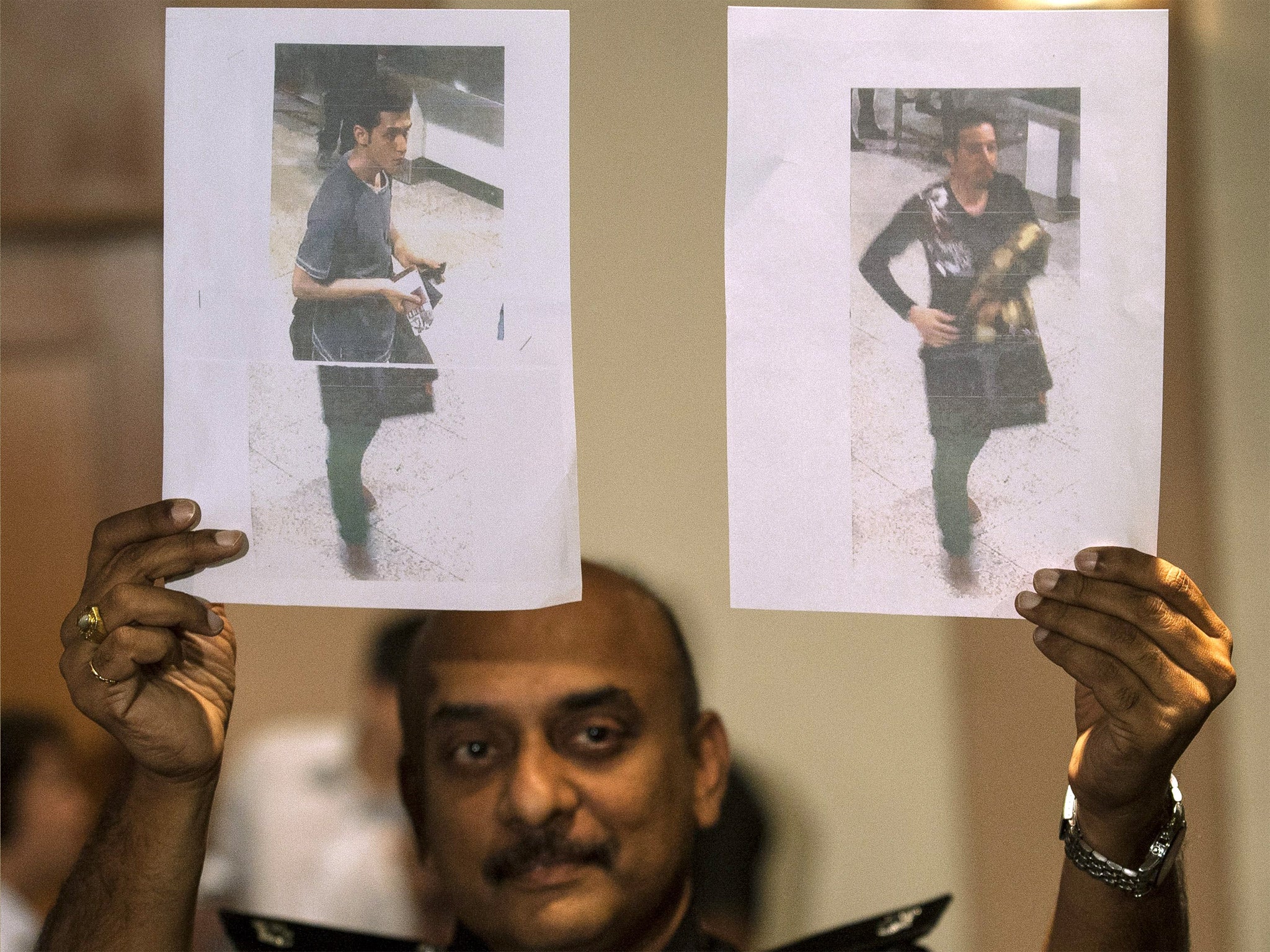Missing Malaysia Airlines Flight MH370: Thailand's growing passport scam
Though the use of stolen passports is thought to have nothing to do with the disappearance of the aircraft, security officials are emphasising the threat to air safety

Your support helps us to tell the story
From reproductive rights to climate change to Big Tech, The Independent is on the ground when the story is developing. Whether it's investigating the financials of Elon Musk's pro-Trump PAC or producing our latest documentary, 'The A Word', which shines a light on the American women fighting for reproductive rights, we know how important it is to parse out the facts from the messaging.
At such a critical moment in US history, we need reporters on the ground. Your donation allows us to keep sending journalists to speak to both sides of the story.
The Independent is trusted by Americans across the entire political spectrum. And unlike many other quality news outlets, we choose not to lock Americans out of our reporting and analysis with paywalls. We believe quality journalism should be available to everyone, paid for by those who can afford it.
Your support makes all the difference.The discovery that two men on board the missing Malaysia Airlines flight used travel documents stolen in Thailand has highlighted the country’s unwanted reputation for passport scams.
The men – who have now been identified as Iranians with no known links to terrorism – bought tickets to Beijing and then onwards to Europe in the resort town of Pattaya. They travelled on passports that had belonged to Austrian Christian Kozel and Italian Luigi Maraldi, who previously reported them stolen on the holiday island of Phuket.
With millions of tourists each year and a reputation for corruption and often weak law enforcement, Thailand has become a hub for fake passport rackets. And though the use of stolen passports is thought to have nothing to do with the disappearance of flight MH370, security officials are emphasising that the prevalence of such passports, and the widespread failure of airports to screen them properly, represent a threat to air safety.
The government in Thailand sees document fraud as a “major security threat”, Senior Colonel Prinya Chaibilok, deputy spokesman for the National Security Council, told The Independent.
He said around 10,000 passports are lost or stolen in the country each year, and most thefts are by opportunistic thieves who often sell them on to forgers, most of them foreign. In a country that last year welcomed 26.7 million visitors, he added, “it is very hard for us to take care of them all”. According to Foreign Office statistics, 526 British citizens reported their passports lost or stolen in Thailand last year.
There is a huge black market in the country for falsified passports, which can be sold for thousands of dollars each. They are used for cross-border crimes including smuggling and illegal immigration, and sometimes end up in the hands of terrorists.
The discovery that a suspect in the 2004 Madrid train bombings that killed 191 people had travelled on a stolen passport prompted a major joint investigation by Thai and Spanish police.
This led to the arrest in 2009 of Iranian-born Briton Ahboor Rambarak Fath as he arrived from Spain at Bangkok’s Suvarnabhumi airport. He was carrying a bag containing 103 stolen European, Canadian and Israeli passports.
The following year, investigators arrested Pakistani national Muhammed Ather “Tony” Butt, described by Thai police as the “kingpin” of the trade. A room in his apartment was said to resemble a small factory, where officers found computers, a scanner and printer, passports, photos, visa stamps and stickers and other equipment used for forging passports.
Local media reported that Butt had transferred about 20m baht (£370,000) in and out of the country in the previous four years, and had US$90,000 cash under the seat of his car when he was arrested at the Laos border.
The officer who led the investigation told the Bangkok Post that Butt had paid off senior officials in return for protection. His gang also reportedly supplied forged passports to Tamil separatists in Sri Lanka and the Pakistan-based Lashkar-e-Taiba group, thought to be behind the 2008 Mumbai attacks which killed at least 166 people. Butt was jailed for 15 years in 2012.
Thailand’s passport scams are said to have originated in the 1980s, when criminal gangs started stealing and crudely falsifying passports to cash in stolen travellers’ cheques. Today they are more sophisticated, with expert forgers inserting photographs and fake pages into authentic passports, or making fake ones from scratch using cutting-edge printing technology.
Occasionally, hard-up tourists will sell or “rent” their passports to the gangs, but more often they are stolen from bars, hotels and other places where tourists congregate. Occasionally they go missing after being handed over when tourists rent motorbikes or jet skis. It said officials have assembled a blacklist with 1,500 names of known or suspected forgers – mostly from Iran, Iraq, Syria and Pakistan.
Join our commenting forum
Join thought-provoking conversations, follow other Independent readers and see their replies
Comments